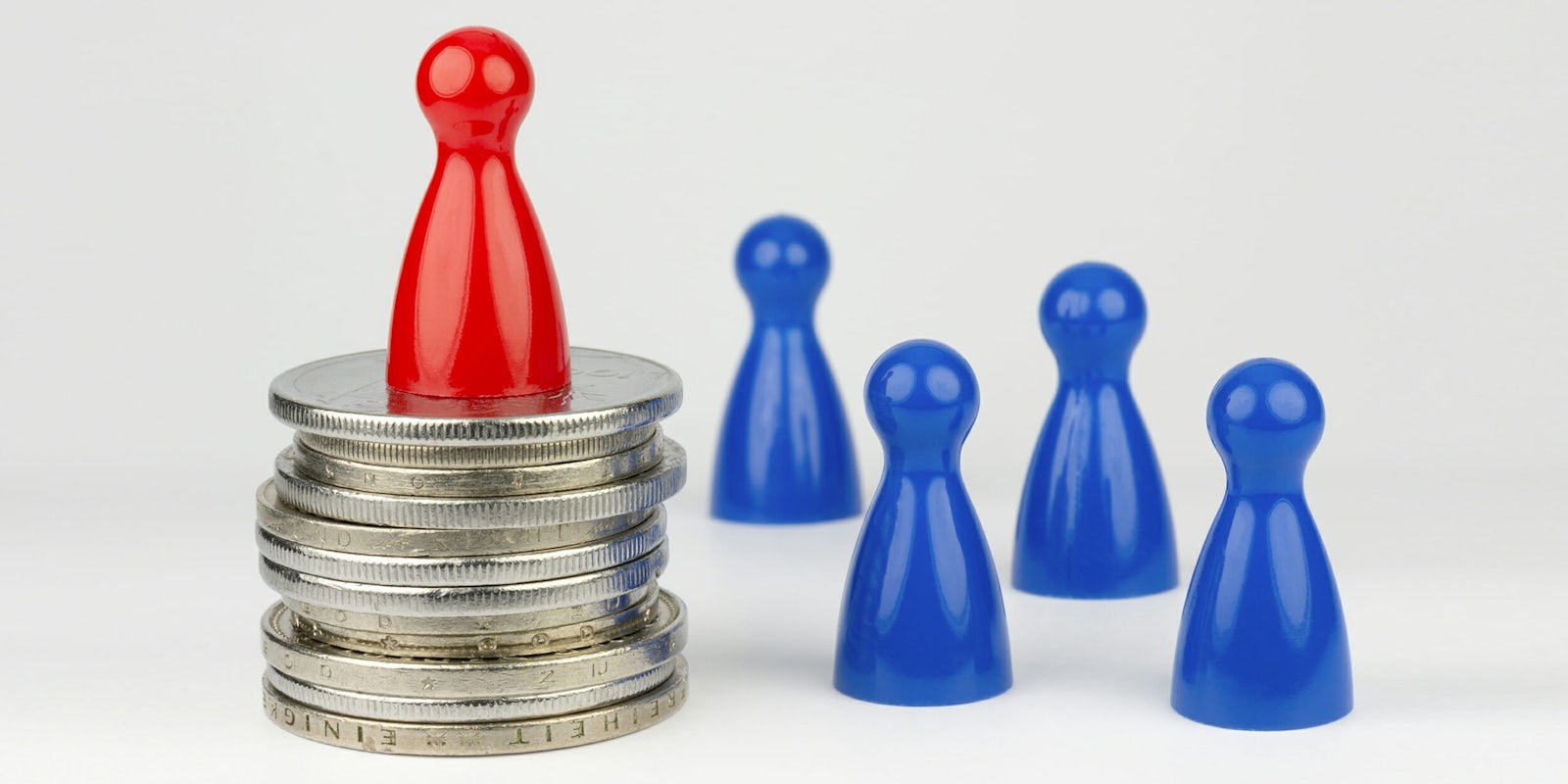With President Donald Trump, a billionaire businessman, now the most powerful politician in America, you may have heard people throwing around the term “oligarchy” more than usual.
The United States is a democratic nation, but many worry that the balance of power under Trump will shift further toward the rich and well-connected more than it already has.
There are 196 countries in the world today, and in each one, you’ll find a slightly different governing system. But any system can become corrupted to benefit the few at the expense of everyone else, usually with some help from their friends in power. That’s where an oligarchy begins.
What is an oligarchy?
An oligarchy is when a prominent family, business, or a few members of a small and privileged group rule a country. In many instances, their rule results in deep government corruption. In the U.S., conflicts of interests—where a government decision benefits the people in power—is (usually) against the law and heavily enforced. In an oligarchy, not so much.
Typically the select few at the top govern in such a way that they help enrich and further empower each other through the pursuit of a selfish agenda.
An oligarchical system is often the underlying structure beneath a country’s democratic, monarchic, or theocratic system—that is to say, an oligarchy itself is not a system of government but a characteristic that can apply to virtually all forms of governance. Regardless of the system, the result is the same: Under an oligarchy, the political decisions are not influenced by the people but by the ruling group that holds the power.
What is the origin?
“Oligarchy” traces back to medieval Latin and Grecian roots circa the late 15th century, and it means “government by the few.” The form of government took its roots in Rome and Greece, where the government was overthrown twice in Athens, once in 411 B.C. and another in 404 B.C.
What countries are considered oligarchies?
The former Soviet Union (USSR), before its fall in 1991, is perhaps the most popular example of an oligarchy. But there are a number of powerful countries that continue to have oligarchical traits. The countries include, but are not limited to, China, Russia, North Korea
Is America an oligarchy?
The short answer is… it’s complicated. Many would argue that America is still very much a democracy, an argument bolstered by our election process. However, a joint study released in April 2014 by Princeton and Northwestern universities concluded that America was, in fact, already an oligarchy.
“[E]conomic elites and organized groups representing business interests have substantial independent impacts on U.S. government policy,” the researchers wrote, “while average citizens and mass-based interest groups have little or no independent influence.”
With Trump now in office, some critics believe the country is on track to becoming more oligarchic—although plenty of people on both sides of this issue would debate this in detail.
The president’s business interests and his family’s close proximity to the White House create the perception of a consolidation of power within a single group and the opportunity for using the government for personal enrichment.
Trump has argued, correctly, that he is exempt from laws governing conflicts of interest within the executive branch. But that doesn’t mean his position as president won’t help him grow his wealth.
Adding further concerns, Trump has refused to release his tax returns, which makes him the first president in 40 years to not present these revealing documents to the public.
On top of all that, Trump has appointed or nominated the “wealthiest cabinet in American history,” as CBS News characterized it, with seven of his nominees being worth an estimated combined total of $11 billion.
That number alone is enough to raise some eyebrows.


